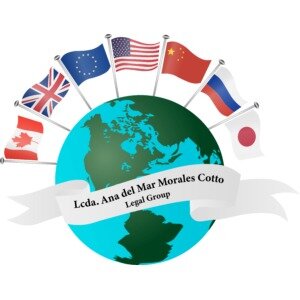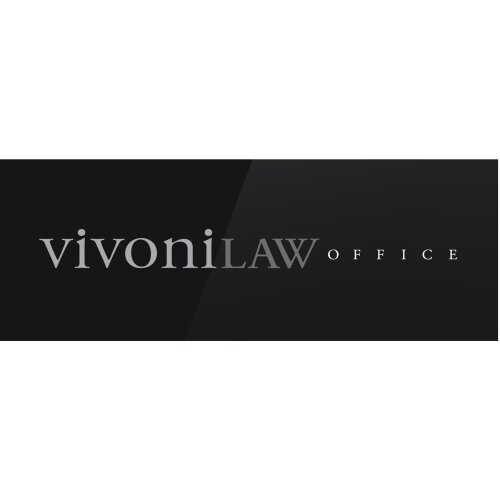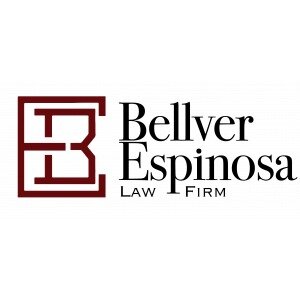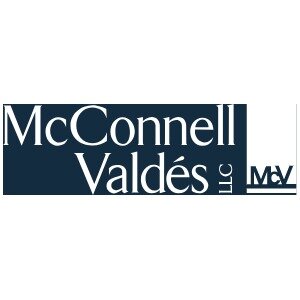Best Water Law Lawyers in San Juan
Share your needs with us, get contacted by law firms.
Free. Takes 2 min.
List of the best lawyers in San Juan, Puerto Rico
About Water Law in San Juan, Puerto Rico
Water Law in San Juan, Puerto Rico, covers the regulation, use, and management of water resources, including rivers, reservoirs, groundwater, and coastal waters. This legal field guides who has access to water, how it can be used, and how water sources are protected from pollution and overuse. As an archipelago, Puerto Rico has unique challenges, including periods of drought, tropical storms, and infrastructure limitations, making water management a critical legal concern. The law in Puerto Rico is influenced by a mix of Spanish civil law traditions and more recent influences from US federal law.
Why You May Need a Lawyer
Seeking legal advice in Water Law may become necessary in several situations. Common scenarios include disputes over water rights between neighbors or businesses, challenges related to water contamination or pollution, permitting issues for new construction projects near water bodies, or facing accusations of violating local or federal water regulations. Lawyers play an important role in helping individuals, communities, agricultural producers, and businesses understand their rights, navigate government agencies, handle enforcement actions, and resolve water use conflicts.
Local Laws Overview
Puerto Rico’s water laws consist of a combination of statutes, regulations, and case law. Key aspects include:
- Water Uses and Rights: The government owns all surface and groundwater resources, and access is regulated through various permitting systems managed by local agencies.
- Agency Oversight: The Puerto Rico Aqueduct and Sewer Authority (PRASA) oversees public water supply and distribution. The Department of Natural and Environmental Resources (DRNA) regulates withdrawals, conservation, and environmental protection related to water.
- Environmental Protection: Strict rules manage pollution, wastewater discharge, and conservation in accordance with Puerto Rico statutes and the federal Clean Water Act.
- Riparian Rights and Permits: Landowners must obtain government permits before altering waterways or constructing near water bodies, and special rules may apply to coastal or navigable waters.
- Public Health and Drought Measures: Local authorities can impose water use restrictions or rationing during times of drought or public health crises.
Frequently Asked Questions
What is the general legal principle for water ownership in Puerto Rico?
In Puerto Rico, water resources such as rivers, lakes, and groundwater are considered public domain and managed by the government. Private ownership of water is not generally allowed, although individuals and entities can obtain rights to use water under regulated permits.
Who regulates water usage and distribution in San Juan?
The Puerto Rico Aqueduct and Sewer Authority (PRASA) is responsible for water treatment and distribution, while the Department of Natural and Environmental Resources (DRNA) regulates water withdrawals, maintains conservation, and oversees enforcement of water-related laws.
Can I drill a well on my property in San Juan?
Drilling a well on private property is subject to strict permitting by the DRNA. Applicants must demonstrate a legitimate need and show that the well will not negatively affect public water resources or neighbors.
What can I do if my property is affected by water pollution?
If you experience water pollution, you may file a complaint with the DRNA, PRASA, or the US Environmental Protection Agency (EPA), depending on the source of contamination. You may also consult a lawyer to explore civil claims for damages or to enforce cleanup.
How do droughts affect my water rights?
During declared droughts, the government can impose water use restrictions or rationing. These measures are enforceable by law and can temporarily limit water usage even for those with existing permits or rights.
Am I responsible for runoff or flooding caused by my construction?
Yes, property owners whose construction activities change natural water flow and cause runoff, flooding, or pollution may be held liable for damages and subject to regulatory penalties. It is important to comply with all local permits and environmental regulations.
What are the penalties for illegal water withdrawals or pollution?
Penalties can include substantial fines, mandatory cleanup orders, suspension of permits, or even criminal prosecution depending on the severity and impact of the violation.
Can communities or homeowner associations manage their own water supply?
Some communities operate their own small water systems, but they are still subject to PRASA oversight, quality standards, and must maintain permits for water use and distribution.
Do federal laws apply to water in Puerto Rico?
Yes, federal statutes such as the Clean Water Act and Safe Drinking Water Act apply in Puerto Rico. These standards are enforced alongside local water regulations.
How can a lawyer help with water-related disputes?
A lawyer can help identify your rights, represent you before government agencies, gather evidence, negotiate settlements, and litigate issues such as water rights, contamination, or regulatory enforcement actions.
Additional Resources
If you need more information or assistance, consider reaching out to:
- Puerto Rico Department of Natural and Environmental Resources (DRNA): The primary authority for water resource management, permits, and enforcement.
- Puerto Rico Aqueduct and Sewer Authority (PRASA): For issues related to public water supply and wastewater.
- US Environmental Protection Agency (EPA) - Caribbean Environmental Protection Division: For federal environmental laws and regulations.
- Legal Aid Organizations: Local legal aid societies may provide free or low-cost assistance for eligible residents with environmental or property-related legal issues.
- Puerto Rico Bar Association: For referrals to licensed attorneys with experience in Water Law.
Next Steps
If you believe you need legal assistance regarding Water Law in San Juan, it is important to document your issue, gather any relevant permits or communications, and seek professional advice as soon as possible. You can start by consulting with a qualified attorney who specializes in environmental or natural resources law. Contacting the local agencies listed above can also provide valuable guidance, especially for questions about permits, water quality, or regulations. Taking early action is vital to protect your property, rights, and interests, and to ensure that any disputes are resolved efficiently and legally.
Lawzana helps you find the best lawyers and law firms in San Juan through a curated and pre-screened list of qualified legal professionals. Our platform offers rankings and detailed profiles of attorneys and law firms, allowing you to compare based on practice areas, including Water Law, experience, and client feedback.
Each profile includes a description of the firm's areas of practice, client reviews, team members and partners, year of establishment, spoken languages, office locations, contact information, social media presence, and any published articles or resources. Most firms on our platform speak English and are experienced in both local and international legal matters.
Get a quote from top-rated law firms in San Juan, Puerto Rico — quickly, securely, and without unnecessary hassle.
Disclaimer:
The information provided on this page is for general informational purposes only and does not constitute legal advice. While we strive to ensure the accuracy and relevance of the content, legal information may change over time, and interpretations of the law can vary. You should always consult with a qualified legal professional for advice specific to your situation.
We disclaim all liability for actions taken or not taken based on the content of this page. If you believe any information is incorrect or outdated, please contact us, and we will review and update it where appropriate.












